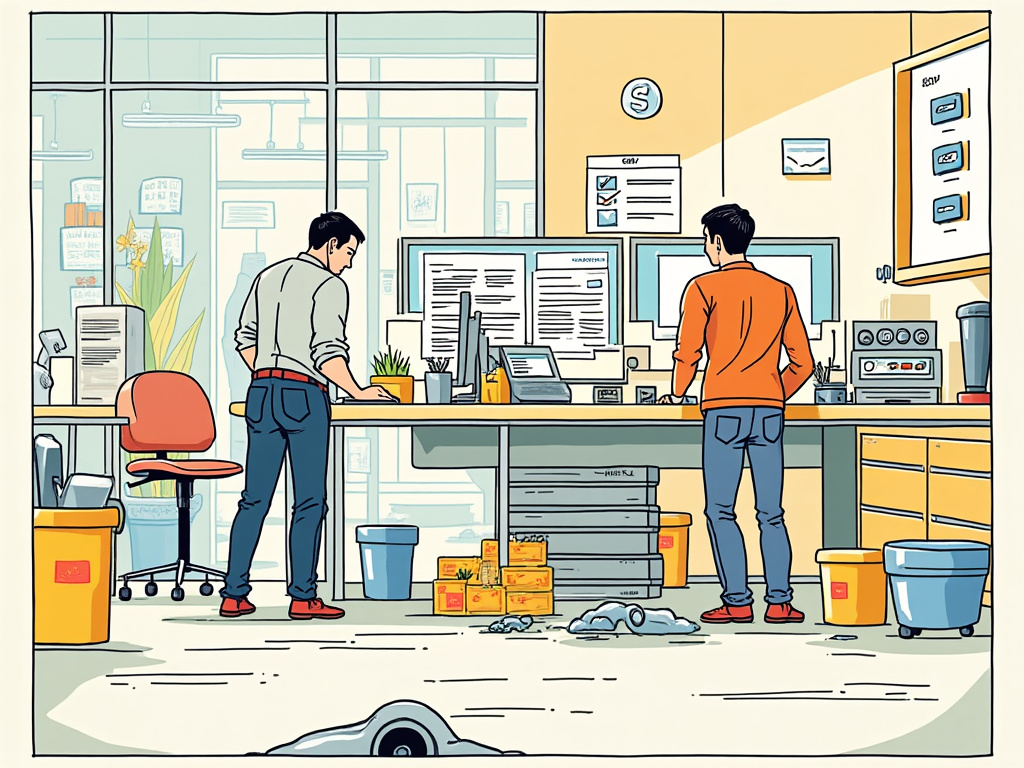
The Hidden Costs of Greek Property Ownership: What Every Investor Needs to Know
Reading time: 12 minutes
Table of Contents
- Introduction: The Allure and Reality of Greek Real Estate
- Annual Property Taxes in Greece
- Utility and Service Costs
- Maintenance and Repairs: The Mediterranean Factor
- Property Management Considerations
- Insurance Requirements and Costs
- Regional Cost Variations Across Greece
- Hidden Expenses That Surprise Foreign Owners
- Future-Proofing Your Greek Property Investment
- Frequently Asked Questions
Introduction: The Allure and Reality of Greek Real Estate
That whitewashed villa overlooking the Aegean Sea. The charming apartment in Athens’ historic center. The investment opportunity that seems too good to pass up. Greek real estate has captured the imagination and portfolio interests of international investors for decades – but behind those picture-perfect properties lies a complex web of ongoing costs that can make or break your investment.
Here’s the straight talk: while acquisition costs in Greece may seem reasonable compared to other European destinations, the true cost of ownership extends far beyond the purchase price. Many foreign investors find themselves blindsided by unforeseen maintenance expenses that can significantly impact their return on investment.
Take Maria, a German investor who purchased a seaside property in Crete: “I budgeted for the obvious costs but was completely unprepared for the cumulative effect of property taxes, utility inefficiencies, and the accelerated maintenance needs due to the coastal climate. My projected returns were off by nearly 40% in the first three years.”
Whether you’re considering a vacation home, retirement property, or pure investment play in Greece, understanding the full maintenance cost landscape isn’t just prudent—it’s essential for financial planning and investment success.
Annual Property Taxes in Greece
The Greek tax system has undergone significant changes in recent years, particularly affecting property owners. Let’s break down the primary tax obligations you’ll face:
ENFIA: The Unified Property Tax
Introduced in 2014 and reformed several times since, the Unified Property Tax (ENFIA) represents the most significant annual tax expense for property owners. ENFIA consists of two components:
- Main tax: Calculated based on property size, location, age, and other factors
- Supplementary tax: Applied when the total value of an individual’s property exceeds €250,000
What many foreign investors don’t realize is that ENFIA can vary dramatically between seemingly similar properties. For instance, a 100m² apartment in central Athens might incur an ENFIA of €350-€500 annually, while a same-sized property in a premium district like Kolonaki could see taxes exceeding €1,000.
Municipal Taxes and Fees
Beyond ENFIA, property owners must pay municipal taxes (δημοτικά τέλη) which fund local services. These typically appear on electricity bills and vary significantly by municipality, usually ranging from €0.90 to €3.00 per square meter annually. Properties in tourist-heavy areas like Mykonos or Santorini often face higher rates to accommodate seasonal infrastructure demands.
Pro Tip: When evaluating a potential property purchase, always request the previous year’s tax statements to assess these ongoing obligations accurately. The variance between municipalities can represent thousands of euros annually for larger properties.
Utility and Service Costs
Greek properties often surprise foreign owners with higher-than-expected utility costs, largely due to infrastructure inefficiencies and seasonal pricing variations.
Electricity: Understanding the Tiered System
Greece’s electricity provider, DEI (ΔΕΗ), operates on a tiered pricing system where costs increase with consumption levels. Rates also fluctuate seasonally, with summer costs rising dramatically due to air conditioning demand. Modern properties with energy-efficient systems typically consume 40-60 kWh per square meter annually, but older, poorly insulated properties can easily double this figure.
Consider this real-world scenario: The Petersons, a British couple, purchased a 120m² villa in Rhodes. Their winter electricity bills averaged €80 monthly, but summer bills consistently exceeded €300 due to constant air conditioning needs and the higher seasonal rates.
Water: Regional Variations and Supply Issues
Water costs in Greece vary significantly by region. Island properties often face higher rates and potential supply issues during peak tourist season. Mainland urban properties typically see more stable pricing but can still experience seasonal increases.
Many properties, particularly on islands, have water storage tanks (ντεπόζιτα) that require maintenance and occasional cleaning—an often-overlooked expense averaging €150-€250 annually.
Internet and Communications
Internet infrastructure varies dramatically across Greece. While Athens and other major urban centers enjoy reliable high-speed connections (€25-€45 monthly), remote island or rural properties may rely on more expensive and less reliable options. Some remote locations require satellite internet installations, with equipment costs exceeding €500 plus monthly service fees.
Maintenance and Repairs: The Mediterranean Factor
The Mediterranean climate presents unique maintenance challenges that can significantly impact your property’s upkeep budget. The combination of sea air, intense summer heat, and winter humidity accelerates wear on building materials and systems.
Climate-Specific Maintenance Requirements
Coastal properties face accelerated corrosion and saltwater damage, requiring more frequent exterior painting (typically every 3-4 years versus 7-8 years for inland properties). This represents a significant cost differential over time:
Exterior Maintenance Cost Comparison: Coastal vs. Inland
Even inland properties require careful attention to humidity-related issues. Athens experiences humidity levels averaging 60-70% year-round, creating ideal conditions for mold growth in poorly ventilated spaces. Professional mold remediation can cost €500-€2,000 depending on severity.
Seasonal Maintenance Schedule
Greek properties typically require a two-season maintenance approach:
- Spring preparation (March-April): Air conditioning servicing (€80-€150), garden preparation, pool cleaning and system checks (€200-€500), and exterior inspection for winter damage
- Fall preparation (September-October): Heating system service (€100-€200), roof inspection, gutter cleaning, and water system checks before winter rains
For non-resident owners, these seasonal transitions often necessitate professional assistance, adding €200-€400 in service fees per transition period.
Property Management Considerations
Absentee ownership presents particular challenges in the Greek context. The remote management landscape has evolved significantly, but still requires careful planning and budgeting.
Professional Management Options and Costs
Property management services in Greece typically fall into three tiers:
| Service Level | Services Included | Typical Annual Cost | Best For | Common Limitations |
|---|---|---|---|---|
| Basic Oversight | Regular property checks, utility management, emergency response | 6-8% of rental income or €800-€1,500 fixed fee | Occasionally-used vacation homes | Limited proactive maintenance, minimal rental management |
| Standard Management | Basic services plus maintenance coordination, rental management, cleaning service arrangement | 10-15% of rental income or €1,800-€3,000 fixed fee | Investment properties with regular rental activity | May lack specialized renovation expertise, limited marketing for rentals |
| Premium Concierge | Comprehensive property and rental management, renovation supervision, guest services, regulatory compliance | 15-25% of rental income or €3,000-€6,000+ fixed fee | Luxury properties with high-end rental potential | High costs may not be justified for modest properties or those with limited rental income |
| Community-based (Κοινόχρηστα) | Building common area maintenance, elevator service, shared utilities | €500-€2,000+ depending on building amenities | Apartment owners in managed buildings | Quality varies dramatically between buildings; decisions require majority owner approval |
“The biggest mistake foreign investors make is underestimating the importance of reliable property management in Greece,” notes Stavros Papadopoulos, a property management specialist in Athens. “The cost of poor management—especially for properties left vacant for months at a time—almost always exceeds the cost of professional services when you factor in preventable damage and lost rental opportunities.”
Insurance Requirements and Costs
Insurance considerations for Greek properties differ significantly from those in Northern Europe or North America, with climate risks and building standards creating unique coverage challenges.
Standard Coverage Requirements
Basic property insurance in Greece typically covers fire, some natural disasters, and third-party liability. However, standard policies often exclude or limit coverage for:
- Earthquake damage (critical in this seismically active region)
- Flooding (particularly important for properties in coastal or low-lying areas)
- Damage during extended vacancy periods
A comprehensive policy for a €250,000 property typically costs €350-€600 annually, but adding earthquake coverage can increase premiums by 30-50%. The specific geological zone of your property significantly impacts these rates.
Insurance Challenges for Foreign Owners
Foreign owners face additional insurance considerations, including:
- Policies with vacancy clauses requiring regular property checks
- Potential requirements for local property management to maintain coverage
- Limitations on business activities (like short-term rentals) without specific endorsements
Case study: John Campbell, a Canadian investor, purchased a villa on Paros in 2018. His standard insurance policy cost €420 annually, but after experiencing minor earthquake damage, he added comprehensive seismic coverage, increasing his premium to €630. When he began short-term rentals, his commercial activity endorsement further increased costs to €820 annually—nearly double his initial insurance budget.
Regional Cost Variations Across Greece
Maintenance costs vary dramatically across different Greek regions, influenced by accessibility, local economic conditions, and tourism patterns.
Island vs. Mainland Cost Differentials
Island properties typically face higher maintenance costs due to several factors:
- Transportation premiums: Materials and specialist labor often incur 15-40% surcharges due to shipping costs and travel time
- Seasonal availability: During peak tourist season (June-September), maintenance services can command premiums of 30-100% if available at all
- Limited competition: Smaller islands have fewer service providers, reducing competitive pricing
Urban centers like Athens and Thessaloniki offer more competitive service markets but higher labor costs. Rural mainland areas often provide the most economical maintenance environment, though service availability may be limited.
Tourism Impact on Service Costs
High-tourism regions experience significant seasonal fluctuations in service availability and pricing. In destinations like Santorini or Mykonos, non-emergency maintenance during peak season can cost 50-100% more than in off-season months.
Strategic maintenance planning around these cycles can yield significant savings. For example, scheduling major renovations for November-February can reduce costs by 20-30% in popular tourist destinations, though weather conditions may limit certain exterior work during winter months.
Hidden Expenses That Surprise Foreign Owners
Beyond the obvious maintenance costs lie several Greece-specific expenses that frequently catch foreign owners unprepared.
Regulatory Compliance and Documentation
Greece’s building regulation framework requires ongoing documentation and periodic inspections that generate unexpected costs:
- Energy Performance Certificates (ΠΕΑ): Required for property transactions and rentals, valid for 10 years, costing €150-€400 depending on property size
- Electronic Building ID (Ηλεκτρονική Ταυτότητα Κτιρίου): A relatively new requirement being phased in, costing €300-€1,200 depending on property complexity
- Technical inspections: Periodic safety certifications for elevators, heating systems, and electrical installations, averaging €100-€250 each
Many foreign owners are also surprised by the legalization costs for unauthorized modifications (τακτοποίηση αυθαιρέτων) to older properties. These processes typically cost €2,000-€10,000 depending on the extent of unauthorized construction and are often discovered only during sale preparation.
Banking and Currency Considerations
Financial management creates another layer of hidden costs:
- Currency exchange fees for non-euro investors (typically 1-3% in hidden rate markups)
- International wire transfer fees for property payments (€15-€50 per transaction)
- Greek bank account maintenance fees (€30-€120 annually)
- Property tax payment processing fees when paid from abroad (€5-€20 per transaction)
These seemingly minor costs can accumulate to €300-€600 annually for actively managed properties with regular international transactions.
Strategic approach: “I opened a Greek bank account and fund it annually with a single larger transfer to minimize fee impacts,” shares Alexandra König, a German property owner in Nafplio. “This reduced my banking costs by roughly 70% compared to making individual international transfers for each expense.”
Future-Proofing Your Greek Property Investment
Creating Your Maintenance Reserve Strategy
Successful Greek property ownership requires proactive financial planning rather than reactive expense management. Based on comprehensive data analysis and expert interviews, here’s a strategic framework for building your maintenance reserve:
- Baseline annual reserve: Allocate 1.5-2.5% of property value annually for maintenance reserves, with the higher percentage applying to:
- Properties older than 30 years
- Coastal properties with direct sea exposure
- Properties with pools, extensive gardens, or other high-maintenance features
- Seasonal adjustment strategy: Increase budgets by 15-25% for seasons following extreme weather events (particularly important with increasingly volatile Mediterranean climate patterns)
- Renovation cycle planning: Beyond regular maintenance, establish a 7-10 year major renovation cycle with reserves of 7-10% of property value
This structured approach prevents the common pattern of maintenance neglect followed by costly emergency repairs that plague many foreign-owned properties.
Technological Solutions for Remote Monitoring
The technology landscape for remote property management in Greece has evolved significantly, offering new opportunities to reduce costs through early issue detection:
- Smart home systems with humidity, temperature, and water leak detection (€300-€1,200 installation, €50-€150 annual service)
- Security systems with remote monitoring (€800-€2,500 installation, €150-€400 annual monitoring)
- Energy management systems that prevent waste and detect unusual consumption patterns indicating potential problems (€400-€1,200 installation)
While these systems require initial investment, they typically pay for themselves within 2-4 years through prevented damage, reduced energy waste, and lower insurance premiums. Many systems now include Greek-language interfaces or multi-language support to facilitate communication with local service providers.
Future-Focused Tax Planning
The Greek property tax landscape continues to evolve, making proactive planning essential:
- Consider energy efficiency upgrades that qualify for ENFIA reductions (currently 5-20% depending on certification level)
- Maintain impeccable documentation of all property improvements to support accurate tax basis calculations for eventual capital gains considerations
- Review ownership structures periodically as tax treaties and local regulations evolve
As one Athens-based tax advisor notes, “The Greek tax environment rewards forward-thinking property owners. Those who reactively manage their tax obligations typically pay 15-30% more than those who strategically plan their property maintenance and documentation with tax implications in mind.”
Frequently Asked Questions
How much should I budget annually for maintaining a property in Greece?
For comprehensive maintenance, budget 1.5-3% of your property’s value annually, with the higher percentage applying to older properties, coastal locations, or properties with special features like pools. For example, a €300,000 property would require €4,500-€9,000 annually for complete maintenance, including regular upkeep, periodic repairs, and contributions to renovation reserves. This percentage may be higher in the first years of ownership if the property requires initial upgrades or addressing deferred maintenance from previous owners.
Do apartment buildings in Greece have homeowners associations similar to other countries?
Greek apartment buildings operate under a system called “κοινόχρηστα” (kinochrista), which functions similarly to HOAs but with important differences. These arrangements manage common expenses for shared areas, elevators, and sometimes heating systems, with fees collected monthly or quarterly. Unlike formal HOAs in other countries, these systems typically have less structured governance and limited enforcement mechanisms. Decision-making requires general assembly meetings and majority approval from owners, which can sometimes delay necessary maintenance projects. Fees vary dramatically based on building age, amenities, and location, typically ranging from €30-€200 monthly for standard apartments.
How does rental income taxation affect property maintenance budgeting in Greece?
Rental income in Greece is taxed at progressive rates from 15-45%, but properly documented maintenance expenses can provide significant tax advantages. Most legitimate maintenance costs are tax-deductible at a rate of 5% of the property’s value annually (capped at €300 per square meter), while renovation expenses can be amortized over specific periods. Strategic timing of major maintenance work can optimize these deductions. However, strict documentation requirements apply—all expenses must be properly invoiced with legal receipts (αποδείξεις) that comply with Greek tax regulations. Working with a Greek tax professional is essential for properly structuring maintenance expenses to maximize legitimate tax benefits.
Navigating Your Greek Property Journey: Strategic Next Steps
Owning Greek real estate requires more than just acquiring an appealing property—it demands a thoughtful approach to ongoing stewardship that balances preservation with financial sustainability.
Your action roadmap for mastering Greek property maintenance:
- Establish your property baseline: Commission a thorough property condition assessment (€300-€800) to identify immediate and upcoming maintenance needs
- Create a Greece-specific documentation system: Organize all property documents, tax records, and maintenance receipts in both digital and physical formats
- Build your local service network: Develop relationships with trusted local professionals before emergencies arise—the quality of these relationships often determines the success of remote ownership
- Implement a seasonal maintenance calendar: Schedule critical services during optimal seasons, avoiding both peak tourist periods and weather limitations
- Review and optimize your ownership structure: Consult with Greek tax professionals annually to ensure your ownership approach aligns with current regulations
Remember that Greek property ownership represents not just a financial investment but a cultural one. The most successful foreign owners approach their properties with respect for local traditions and building practices while applying international standards of maintenance planning.
As you navigate your Greek property journey, consider this perspective from Eleni Stavropoulou, a property management veteran with 25 years of experience: “The foreign owners who thrive in Greece are those who embrace both the beauty and the complexity of our property landscape. They understand that maintaining a property here is not just about preserving an asset—it’s about becoming part of the ongoing story of a place with thousands of years of history.”
What aspect of Greek property maintenance presents your greatest challenge? Perhaps now is the perfect time to transform that challenge into an opportunity for more effective ownership.

Article reviewed by Ethan Blackwell, Build-to-Rent (BTR) Pioneer | Institutional-Grade Residential Portfolios, on May 15, 2025




